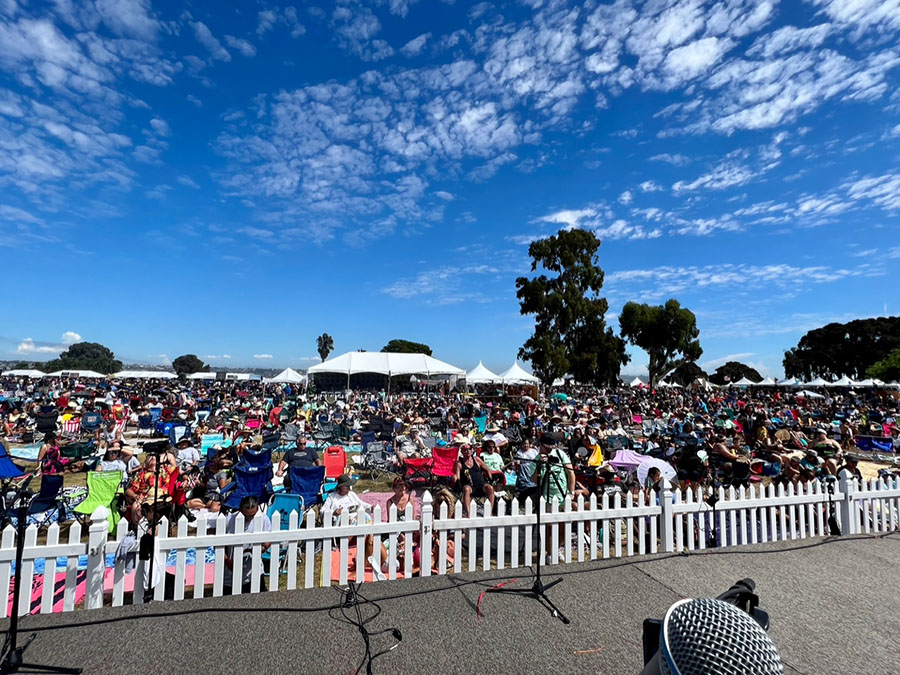It’s GRAMMY Season! A Behind-the-Scenes Look into the Awards Process by Brian A. Witkin, Esq.October 2024
An Interview with Attorney Haley McCullough from Metro-Goldwyn-Mayer Studios Inc by Brian WitkinMay 2022
Introduction

Despite rising inflation, astronomical prices, and hidden fees, concert goers continue to purchase tickets and fill arenas. In 2023, concertgoers seemed more motivated than ever to hear live music, perhaps a reaction to restrictions from a pandemic that lasted 18 months with a live entertainment lockdown.
For decades, companies like Ticketmaster and, more recently, parent company Live Nation have created a lack of competition in the concert industry. Additionally, scalpers resell tickets for hundreds or thousands of dollars more than the original price. Ticket scamming is also on the rise online alongside the use of bots, which forces ticketholders to quickly purchase tickets as soon as they are made available.
An Impetus for Change
A great example of the skyrocketing demand in the post-COVID economy is what happened with Taylor Swift’s Eras Tour. Taylor launched her tour in 2022 and concert sales surged, with some 14 million people trying to get tickets. Part of this demand was because Taylor Swift wanted to keep ticket prices low so her concerts would be more affordable to her loyal fanbase. Unfortunately, the plan backfired. Ticketmaster’s online ticketing system began to crash given the influx of users and bots on the website competing for tickets. Fans waited hours in online queues, experiencing website crashes only to be left ticketless. Live Nation received massive backlash for failing to meet the demand for tickets.
Taylor Swift became an unintentional driving force for change in ticket sales transparency following the Eras Tour ticket debacle. Lawsuits have been filed by many devoted “Swifties” (Taylor Swift Fans). Transparency in fees is one issue, but it is important not to lose sight of the bigger picture. Corporate ticketing platforms have become monopolies on primary and secondary markets. Many of these platforms are engaged in potentially fraudulent practices, including antitrust violations, price discrimination, and price fixing.
Enter the 2023 TICKET Act and the STOP Act
On July 23, 2023, the U.S. House Subcommittee on Energy and Commerce passed H.R. 3950, the Transparency in Charges for Key Events Ticketing (TICKET) Act Act, sending the legislation to the full Senate. This act ensures full disclosure of all ticket fees. If the act becomes law, ticket sellers must provide upfront transparency of the entire cost when advertising or marketing a ticket price. In addition, ticket sellers must disclose an itemized list detailing the base ticket price and each ticket fee at the beginning of a transaction and prior to the selection of the ticket.
On a similar note, the U.S. House Subcommittee on Energy and Commerce passed H.R. 6568, the Speculative Ticketing Oversight and Prohibition (STOP) Act, which is now eligible for a vote by the full House. The act outright bans deceptive websites, misleading marketing tactics, and other fraudulent techniques to trick fans into thinking they are buying legitimate tickets from the artist’s venue. For example, ticket providers are prohibited from using a domain name or subdomain that contains the name of a specific team, league, venue, performance, or artist, or similarly spelled names unless granted permission by the owner of the name.
A related and pervasive form of fraud, known as “speculative ticketing,” means that sellers list tickets for sale, even though they don’t actually have those tickets, based on the notion that they will be able obtain them and resell them to fans. The STOP Act protects fans, artists, and venues from these speculative ticket sellers by requiring sellers to disclose to consumers if the ticket is a speculative ticket.
Finally, the act also ensures that buyers can get refunds when tickets are cancelled or postponed.
Clearly, the issues addressed by recent legislation involve fairness and equity and are much bigger than transparency alone. In addition to scalpers, scammers, and price discrimination, other concerns include but are not limited to fluctuating prices, website crashes, long ticket queues, and technical issues.
Conclusion
While increased transparency regarding fees is important, the TICKET and STOP Acts are not an all-encompassing solution. Prices of concert tickets, like most things right now, are rising. With a handful of companies monopolizing the industry and lack of competition in the ticketing industry, consumers have no choice but to pay higher prices and fees to see their favorite artists live. Competition among major artists and touring companies also contribute to higher prices.
Legalities aside, ticket transparency is a step in the right direction and the TICKET and STOP Acts are a good starting point.
About Brian Witkin
Brian Witkin runs a boutique entertainment law firm in San Diego, California. He is also an award-winning musician, producer, and CEO of Pacific Records. Witkin has spent nearly two decades in the record business and is a Grammy® voting member of the Recording Academy. Brian’s father, Joe Witkin, was the original keyboard player of Sha Na Na, who performed at the iconic Woodstock Festival in 1969.
Note: This article is for general informational purposes only and does not establish an attorney-client relationship. The information is deemed reliable but not guaranteed. Every situation is different, and the general information contained in this article may not apply to your specific situation. The author and publisher assume no responsibility for actions taken based upon the contents of this article. Seek the advice of counsel for your specific situation.
© Law Offices of Brian A. Witkin 2024.

